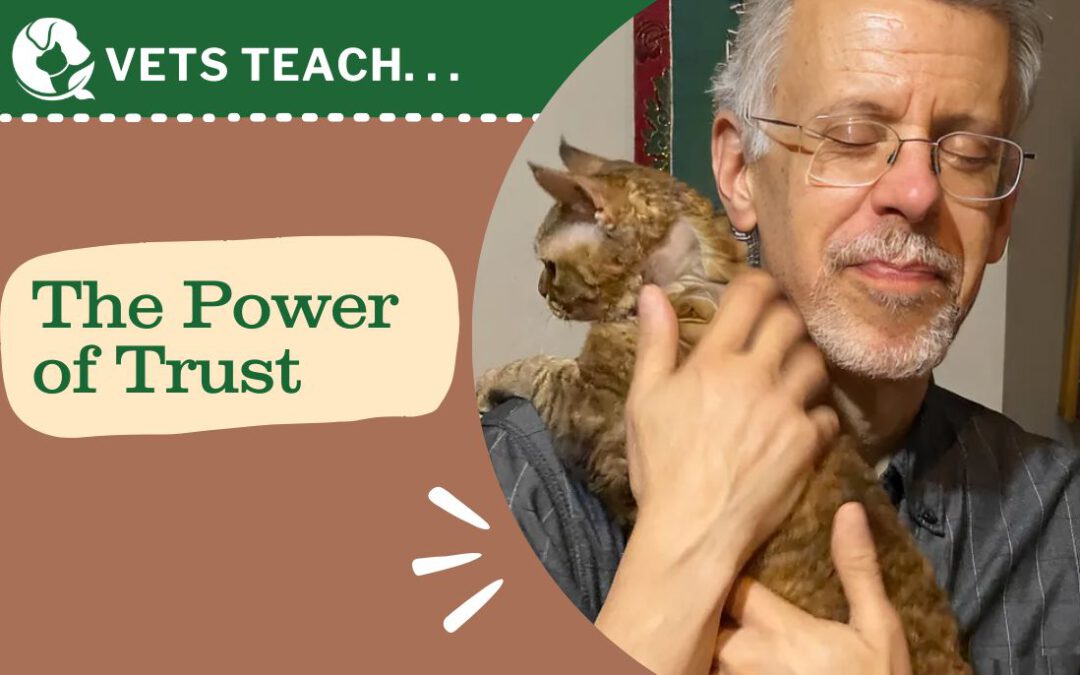11/06/23 Empower Hour! Navigating the Holistic Approaches to Cancer
10/30/23 Empower Hour! Q&A Webinar
10/23/23 Empower Hour! All About Vaccines With Dr. Jeff Grognet
10/16/23 Empower Hour! Understanding Vaccinations
10/09/23 Empower Hour! Rabies Vaccinosis & Homeopathy
10/02/23 Empower Hour! Rabies Challenge Fund
09/25/23 Empower Hour! Homeopathy for Pets Who Vomit
09/18/23 Empower Hour! Fresh Food Therapy for Vomiting
09/04/23 Empower Hour! Soothing Pets Who Vomit
08/28/23 Empower Hour! T Touch for Pets

The Power of Trust and Natural Healing: Embracing Symptoms, Overcoming Fear, and Enhancing Resilience
In a world dominated by scientific advancements and medical breakthroughs, it’s easy to forget that the body possesses an innate ability to heal itself. This extraordinary capacity is often overlooked, overshadowed by the fear of the unknown and the ultimate inevitability of death. However, by fostering trust in the body’s healing abilities, embracing symptoms as valuable messengers, and aligning with the flow of natural healing, we can unlock resilience and decrease susceptibility to disease.
It’s easy to forget that the body possesses an innate ability to heal itself.
Overcoming the Fear of Death
Fear of death is an intrinsic part of the human experience. It’s a primal instinct that has driven us to seek protection and self-preservation throughout history. In the modern age, this fear has manifested as a generalized anxiety about health, leading to an overwhelming reliance on medical interventions. While modern medicine has undeniably transformed healthcare, the fear of death can become a limiting belief that blinds us to the body’s inherent healing mechanisms.
Embracing Symptoms as Messages
Symptoms, often seen as distressing signals of disease, can actually be viewed as the body’s way of communicating with us. They are not merely nuisances to be suppressed, but rather important indicators of underlying imbalances. Trusting in the body’s wisdom means listening to these symptoms instead of fearing them. A headache might not simply be an inconvenience, but a signal that we need more rest, hydration, or stress relief. By understanding symptoms as guides rather than adversaries, we open the door to a deeper connection with our bodies.
Aligning with the Flow of Natural Healing
Central to this paradigm shift is recognizing that healing is not a linear process; it’s a dynamic dance between the physical, mental, and spiritual realms. Embracing this holistic view allows us to work with the flow of natural healing rather than against it. Stress, negativity, and pessimism can disrupt this flow and create internal imbalances that weaken resilience and make us and our beloved companion animals more susceptible to disease.
On the other hand, cultivating positivity, relaxation, and mindfulness can enhance the body’s innate healing responses.
Enhancing Resilience and Restoring Equilibrium
Resilience, often defined as the ability to bounce back from adversity, is closely tied to our trust in the body’s healing capacity. By embracing symptoms and nurturing a mindset of empowerment, we become better equipped to face challenges. Resilience is not about avoiding difficulties but about facing them head-on with the confidence that our body has the tools to recover and restore equilibrium.
Addressing Internal Imbalances
Dis-ease, which is an internal imbalance, can arise when natural healing mechanisms are compromised. These imbalances can be caused by a variety of factors, including stress, poor lifestyle choices, and negative thought patterns. By fostering trust in the body’s wisdom, we can learn to identify these imbalances and take proactive steps to address them. This might involve making dietary changes, practicing relaxation techniques, engaging in regular exercise, and seeking support from a like-minded community (like Holistic Actions!) when needed.
Practices that Align with Natural Healing
Incorporating practices that align with the flow of natural healing can range from simple daily rituals to more profound lifestyle changes. Meditation, deep breathing exercises, yoga, and spending time in nature are all ways to promote relaxation and encourage the body’s healing responses. Engaging in activities that bring joy, practicing gratitude, and cultivating positive relationships can have far-reaching effects on both mental and physical well-being.
Harnessing the Power of Trust
Trust in the body’s healing abilities is a potent force that can transform our approach to health and well-being. By reframing symptoms as valuable messengers and embracing a holistic view of healing, we can break free from the limitations imposed by the fear of death. Working with the flow of natural healing enhances our resilience and decreases susceptibility to dis-ease.
Remember, the body is a remarkable self-regulating system; by fostering TRUST, we can unlock its full potential and embark on a journey towards lasting wellness.
